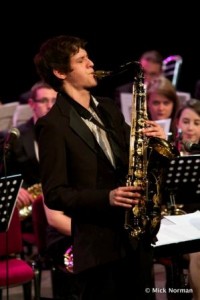A new feature, profiling this year’s new crop of University Music Scholars: this week, saxophonist Tim Pickering.
—-
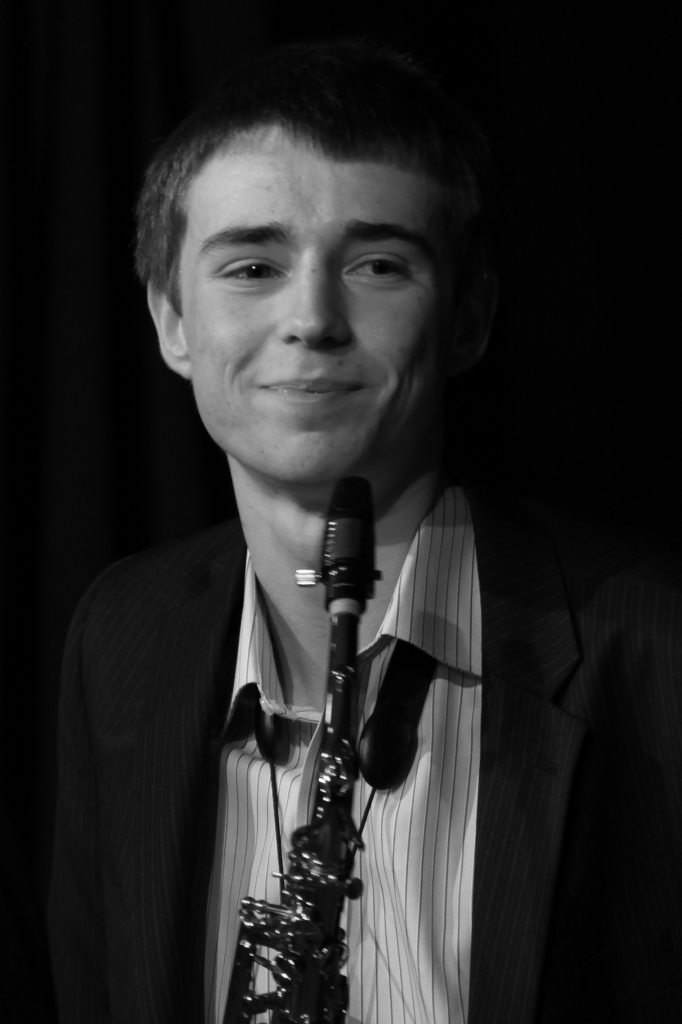 My name is Tim Pickering and I come from Littlehampton in West Sussex, and I am studying for a BSc in Forensic Chemistry. I studied at the Littlehampton Community School, and then took A-Levels at the 6th Form there (although for some reason, not in music!) I have been playing the alto saxophone eleven years, and have recently picked up the tenor saxophone as my primary instrument. I hold ABRSM Grade 7 on Alto Sax, and I am currently working towards Grade 8 on the Tenor.
My name is Tim Pickering and I come from Littlehampton in West Sussex, and I am studying for a BSc in Forensic Chemistry. I studied at the Littlehampton Community School, and then took A-Levels at the 6th Form there (although for some reason, not in music!) I have been playing the alto saxophone eleven years, and have recently picked up the tenor saxophone as my primary instrument. I hold ABRSM Grade 7 on Alto Sax, and I am currently working towards Grade 8 on the Tenor.
I have played with many different groups and set ups – from quintets, pop bands and the local ‘Littlehampton Concert Band’ through to a seventeen-piece big band I assembled with the help of a few friends.
My school never really had a great music department; in fact when I joined, the ‘orchestra’ consisted of myself on alto sax, a flute and two violins! It did improve gradually, and one of the music teachers Steve Winter (a veteran himself of the UKC Big Band and Concert Band) got a small jazz group off the ground, which was great as it got some musicians in the music department some much-needed gigs! Although when the new head of music arrived in my second year, classical music lost the emphasis and steel pans became all the rage (much to the other musicians’ disgust!). Our school wasn’t involved in the county music side of things either, so this meant if I wanted playing opportunities in larger groups, I had to create them myself!
I am currently working on putting together and rehearsing a quintet here at Canterbury, with the aim of tackling styles from straight ahead jazz to rhythm and blues, and maybe even some classic rock ‘n’ roll. I’m looking forward to hopefully performing at some of the Jazz @5 sessions , and generally what music here brings for me! I am also playing first Tenor Sax in the Concert Band and Big Band. However, I still would like to play more, so if anyone is looking for a sax player for their band…
I feel I have been very privileged in being picked as a music scholar here at Canterbury, and the musical side of life is fantastic – in fact it was the music department that really swayed my decision to apply here! To go from playing in small jazz quintets and the very occasional Big-Band get together, to rehearsing solidly once a week with decent gigs booked is an exciting change for me! I really want to use my time at university to push myself to be the best sax player I can possibly be, and I hope with the scholarship and the help of my teacher Peter Cook, I hope I can continue to progress.
 Bringing together the University Concert Band, Chorus, Symphony Orchestra and Chamber Choir, the programme includes the finale of Mozart’s popular Clarinet Concerto, with Music Scholar Sarah Davies as soloist; there’ll be film music from the Concert Band, a choral medley from My Fair Lady from the Chorus, pieces from the Chamber Choir (we’re sworn to secrecy about one of them!), Brahms’ Academic Festival Overture from the Orchestra, plus some popular favourites from Johann Strauss and Elgar – and a few surprises as well. There’ll even be balloons…
Bringing together the University Concert Band, Chorus, Symphony Orchestra and Chamber Choir, the programme includes the finale of Mozart’s popular Clarinet Concerto, with Music Scholar Sarah Davies as soloist; there’ll be film music from the Concert Band, a choral medley from My Fair Lady from the Chorus, pieces from the Chamber Choir (we’re sworn to secrecy about one of them!), Brahms’ Academic Festival Overture from the Orchestra, plus some popular favourites from Johann Strauss and Elgar – and a few surprises as well. There’ll even be balloons…
 My name is Tim Pickering and I come from Littlehampton in West Sussex, and I am studying for a BSc in Forensic Chemistry. I studied at the Littlehampton Community School, and then took A-Levels at the 6th Form there (although for some reason, not in music!) I have been playing the alto saxophone eleven years, and have recently picked up the tenor saxophone as my primary instrument. I hold ABRSM Grade 7 on Alto Sax, and I am currently working towards Grade 8 on the Tenor.
My name is Tim Pickering and I come from Littlehampton in West Sussex, and I am studying for a BSc in Forensic Chemistry. I studied at the Littlehampton Community School, and then took A-Levels at the 6th Form there (although for some reason, not in music!) I have been playing the alto saxophone eleven years, and have recently picked up the tenor saxophone as my primary instrument. I hold ABRSM Grade 7 on Alto Sax, and I am currently working towards Grade 8 on the Tenor.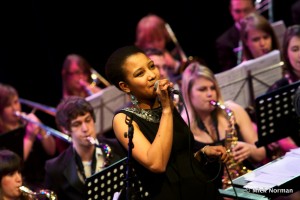
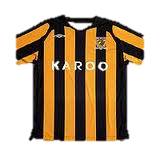 Details
Details  Events kick off in a few week’s time with the award-winning St James Quintet opening the Lunchtime Concert series for the term with an eclectic programme for wind quintet. February begins with a bang as the Concert and Big Bands storm back to the Gulbenkian in ‘Nice ‘n’ Easy,’ with a selection including classic Duke Ellington and pieces fromWicked, to name but a few; the Chamber Choir will take you on an evocative journey ‘From Morn to Midnight‘ in the intimacy of Canterbury Cathedral Crypt towards the end of the month.
Events kick off in a few week’s time with the award-winning St James Quintet opening the Lunchtime Concert series for the term with an eclectic programme for wind quintet. February begins with a bang as the Concert and Big Bands storm back to the Gulbenkian in ‘Nice ‘n’ Easy,’ with a selection including classic Duke Ellington and pieces fromWicked, to name but a few; the Chamber Choir will take you on an evocative journey ‘From Morn to Midnight‘ in the intimacy of Canterbury Cathedral Crypt towards the end of the month. March promises to be an epic month; there’s the glory of the Colyer-Fergusson Cathedral Concert as the Chorus and Symphony Orchestra unite in Haydn’s Creation; student and staff musicians in Jazz @ 5; the exciting prospect of Korngold’s lyrical second string quartet with the Brodskys; exoticism from the Bamboo and Silk Ensemble; not one – not two – but three bands as the Concert and Big Bands team up with St. Edmund’s School for Big Bands3, before the term finishes with a valedictory lunchtime concert at St Peter’s Church in Canterbury from the newly-founded University Mistral Ensemble and the Chamber Choir.
March promises to be an epic month; there’s the glory of the Colyer-Fergusson Cathedral Concert as the Chorus and Symphony Orchestra unite in Haydn’s Creation; student and staff musicians in Jazz @ 5; the exciting prospect of Korngold’s lyrical second string quartet with the Brodskys; exoticism from the Bamboo and Silk Ensemble; not one – not two – but three bands as the Concert and Big Bands team up with St. Edmund’s School for Big Bands3, before the term finishes with a valedictory lunchtime concert at St Peter’s Church in Canterbury from the newly-founded University Mistral Ensemble and the Chamber Choir. Phew.
Phew.
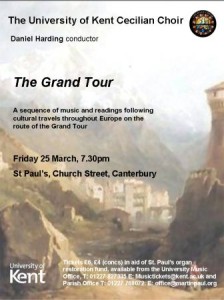

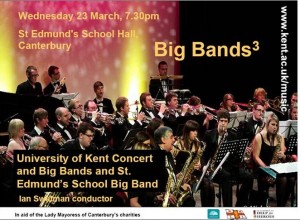 The event is in aid of The Lady Mayoress’ charities, and promises to be a lively event. The first of its kind, conductor Ian Swatman is looking forward to the event (when he can tear himself away from following the fortunes of Hull City, that is…!)
The event is in aid of The Lady Mayoress’ charities, and promises to be a lively event. The first of its kind, conductor Ian Swatman is looking forward to the event (when he can tear himself away from following the fortunes of Hull City, that is…!)
